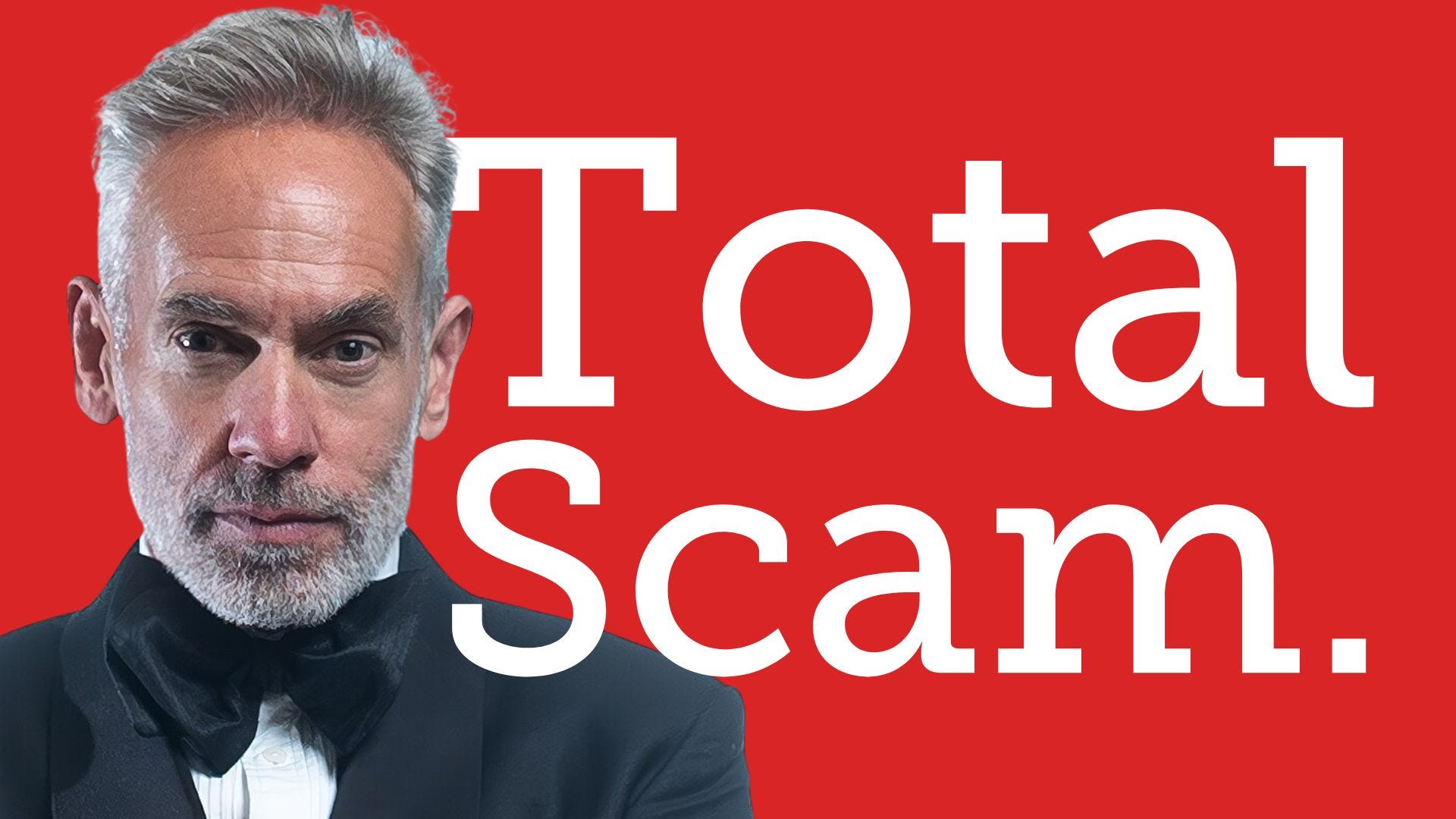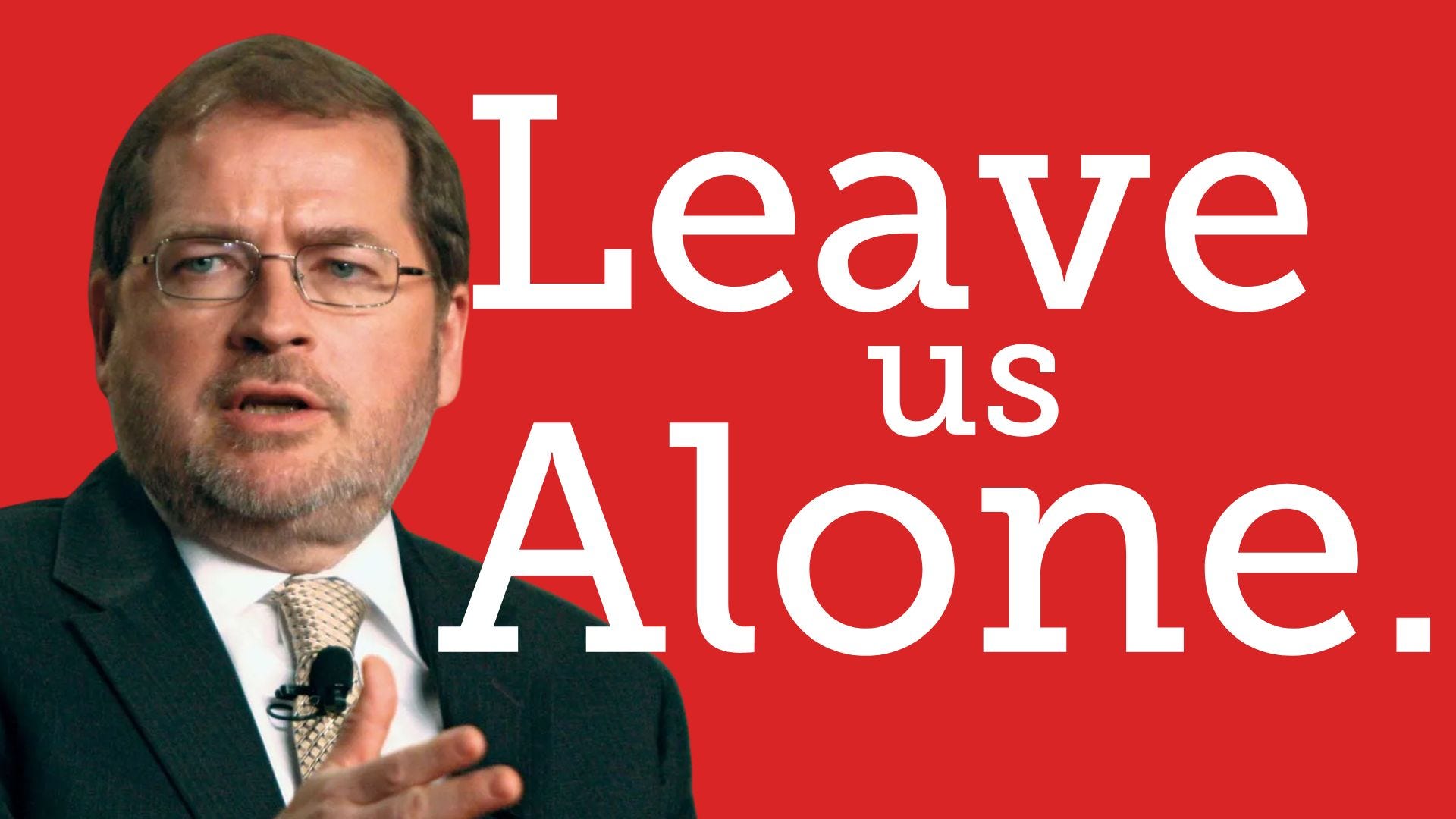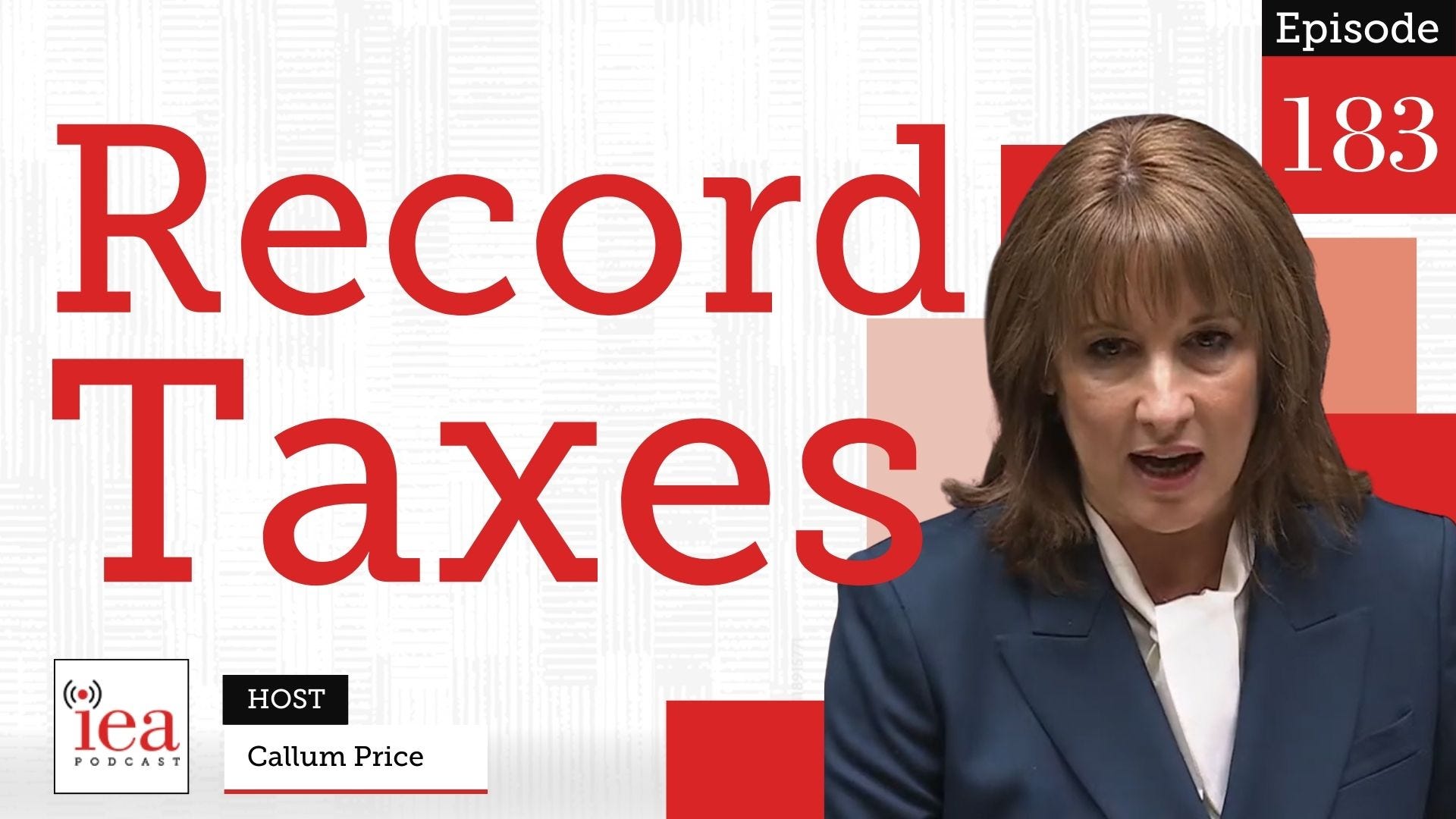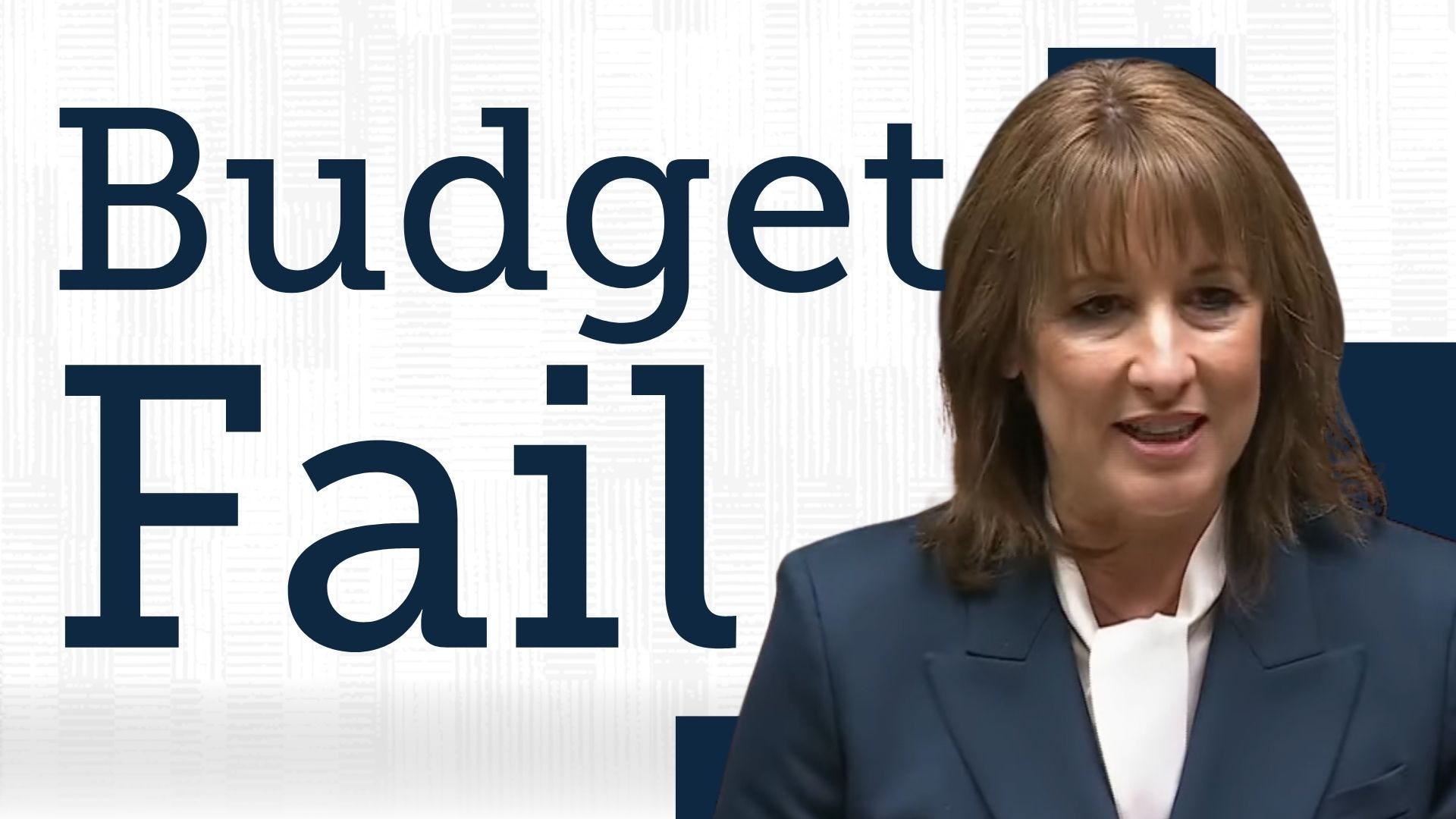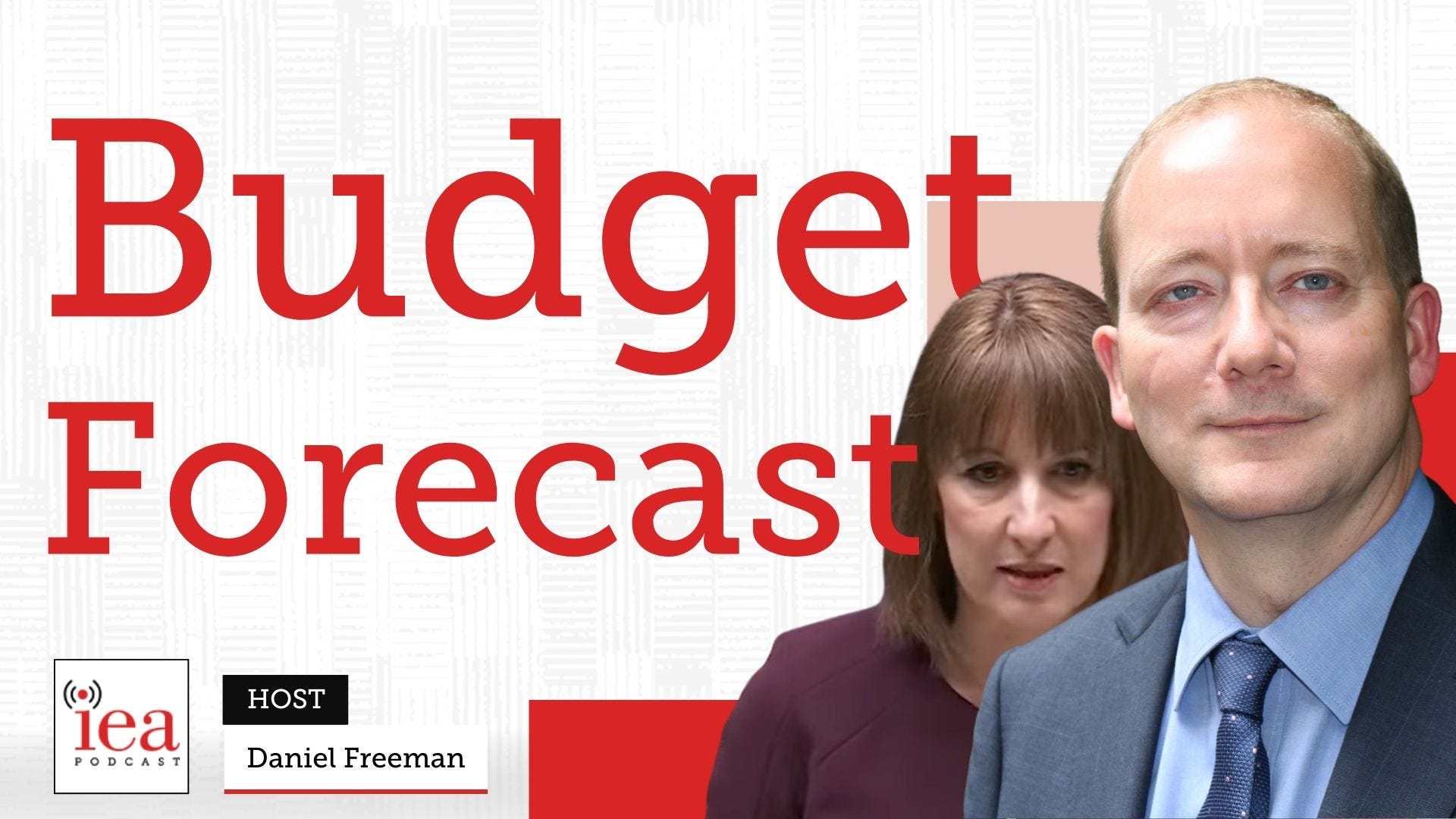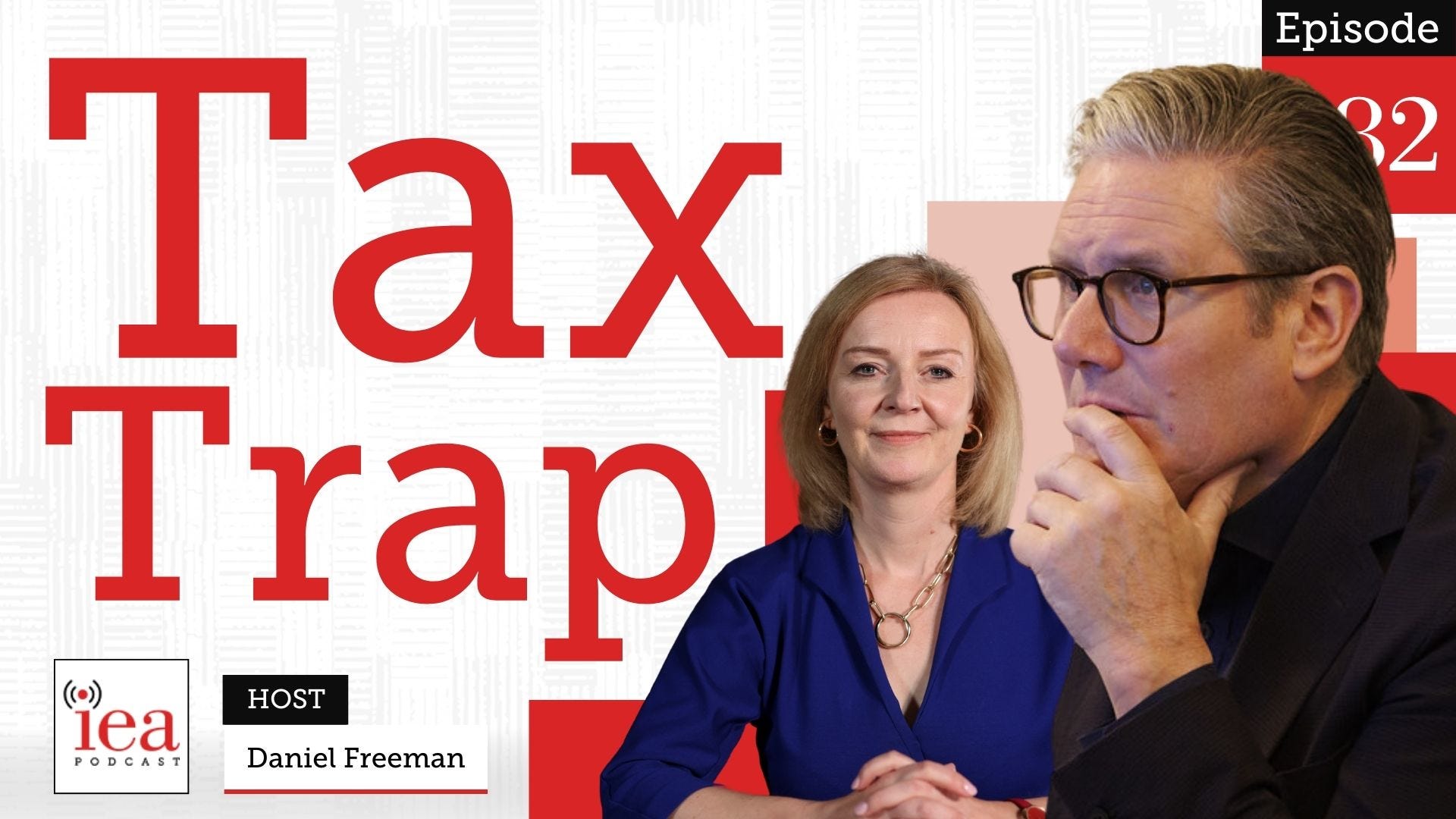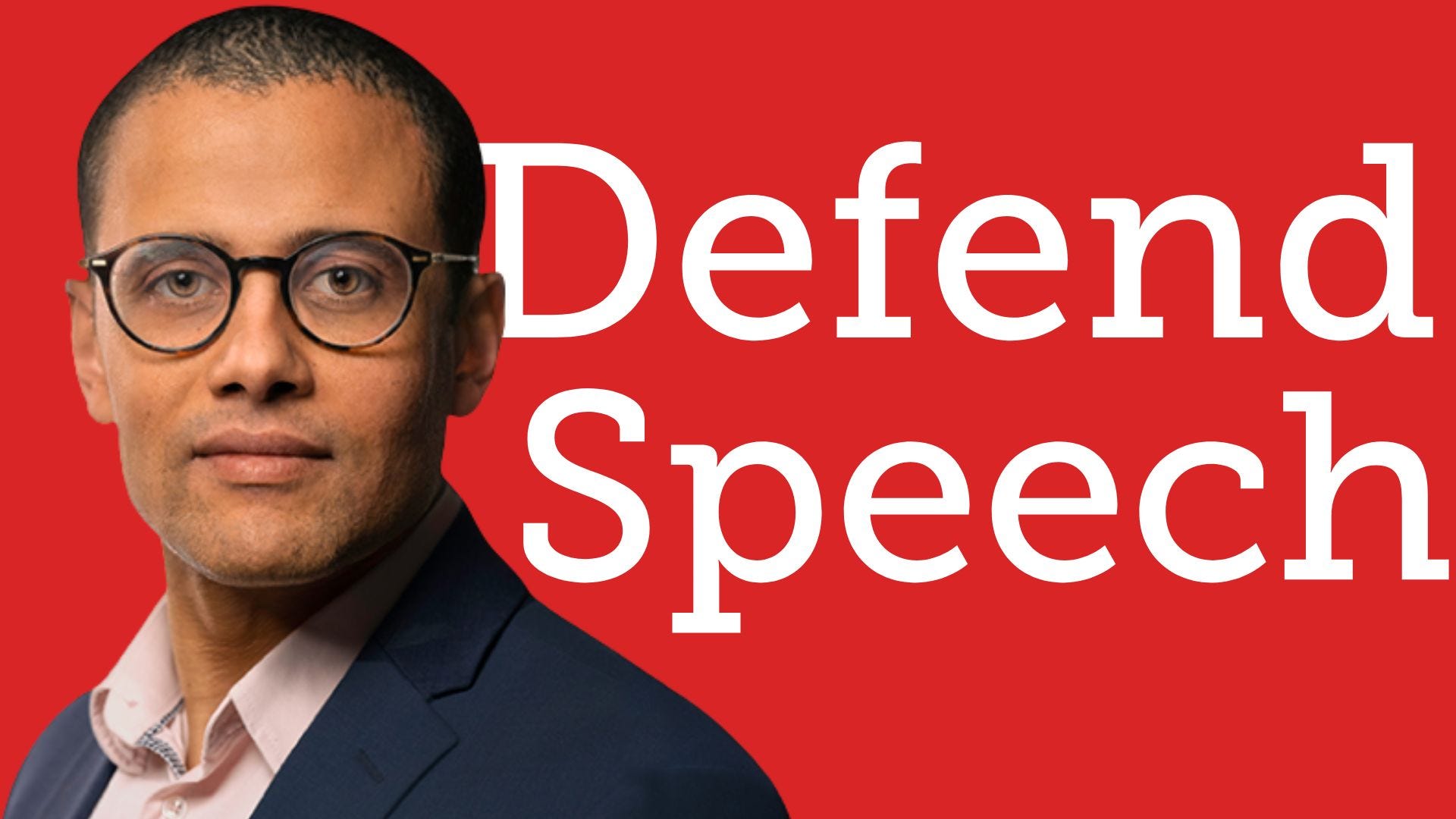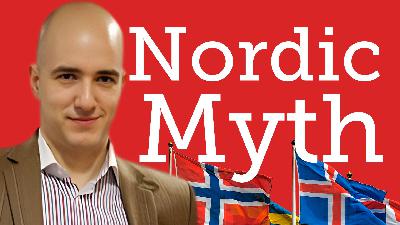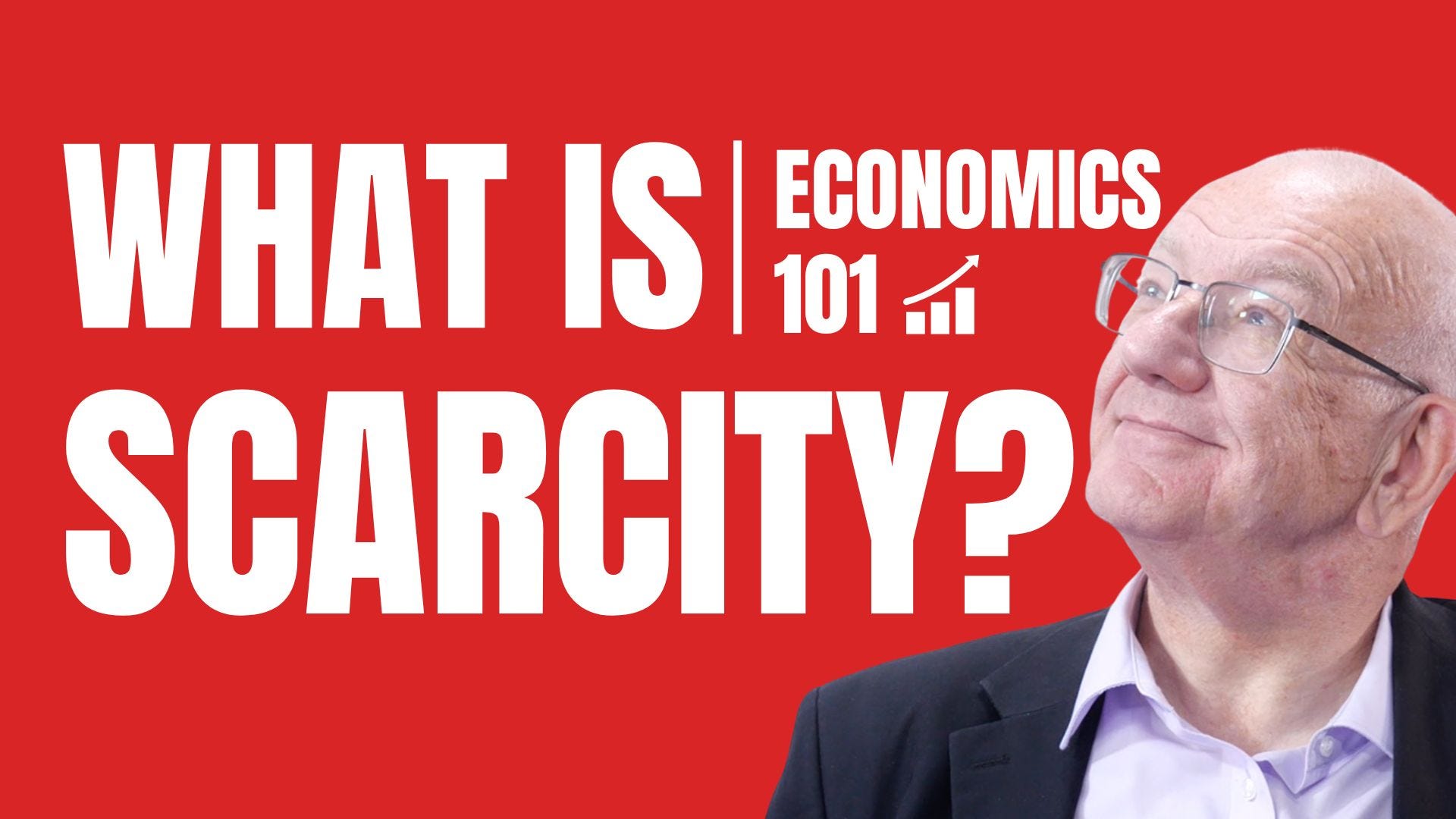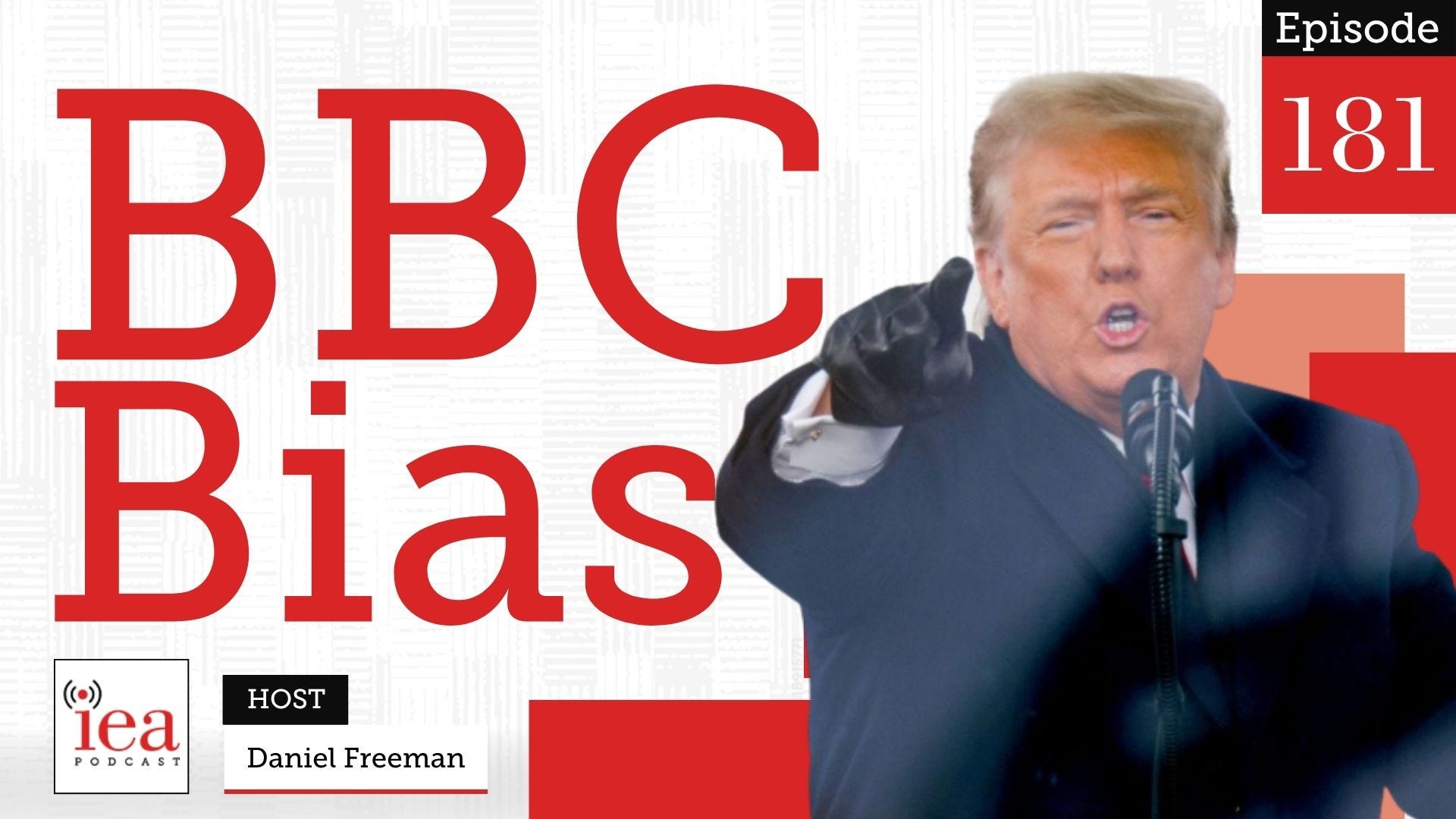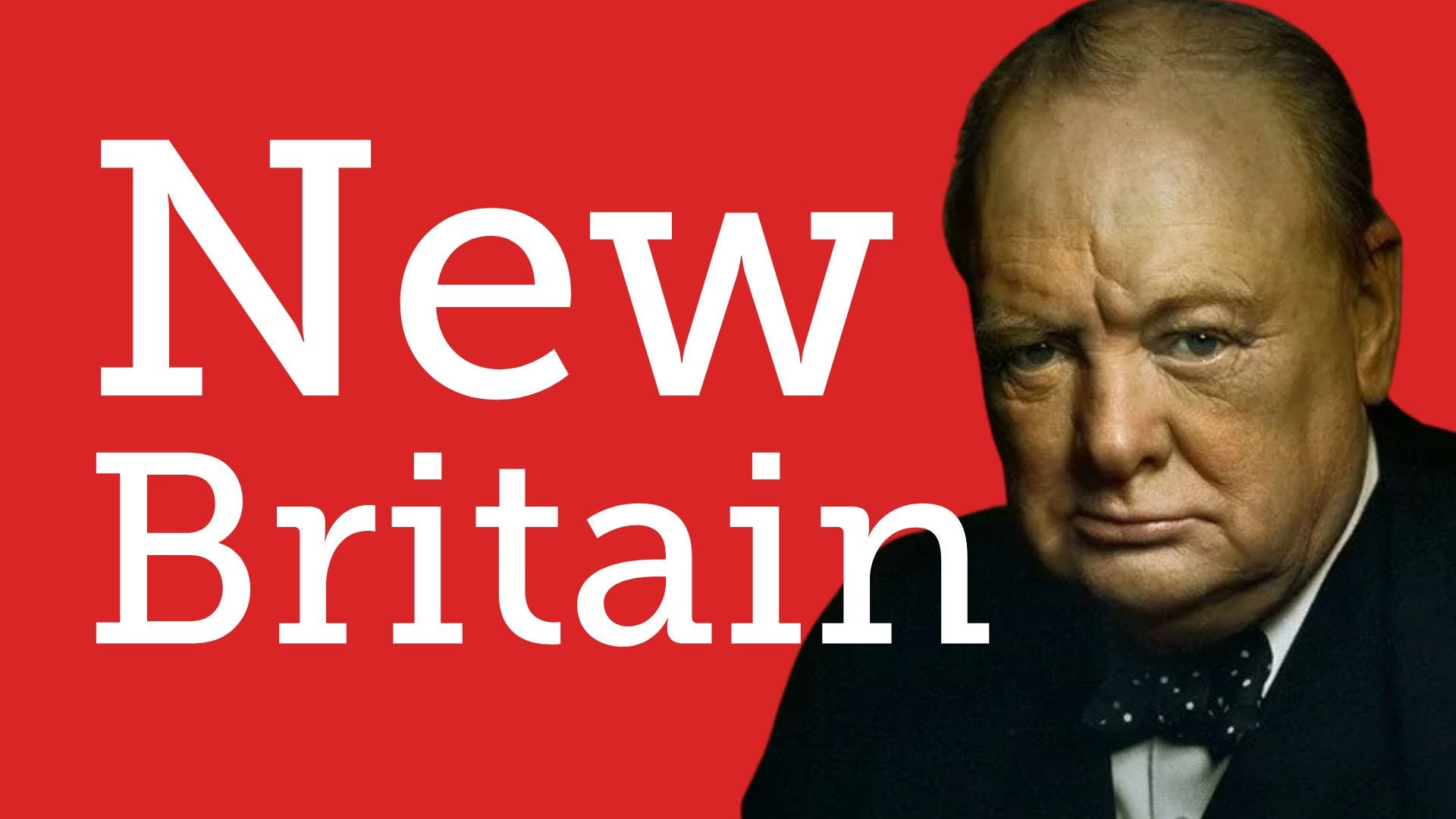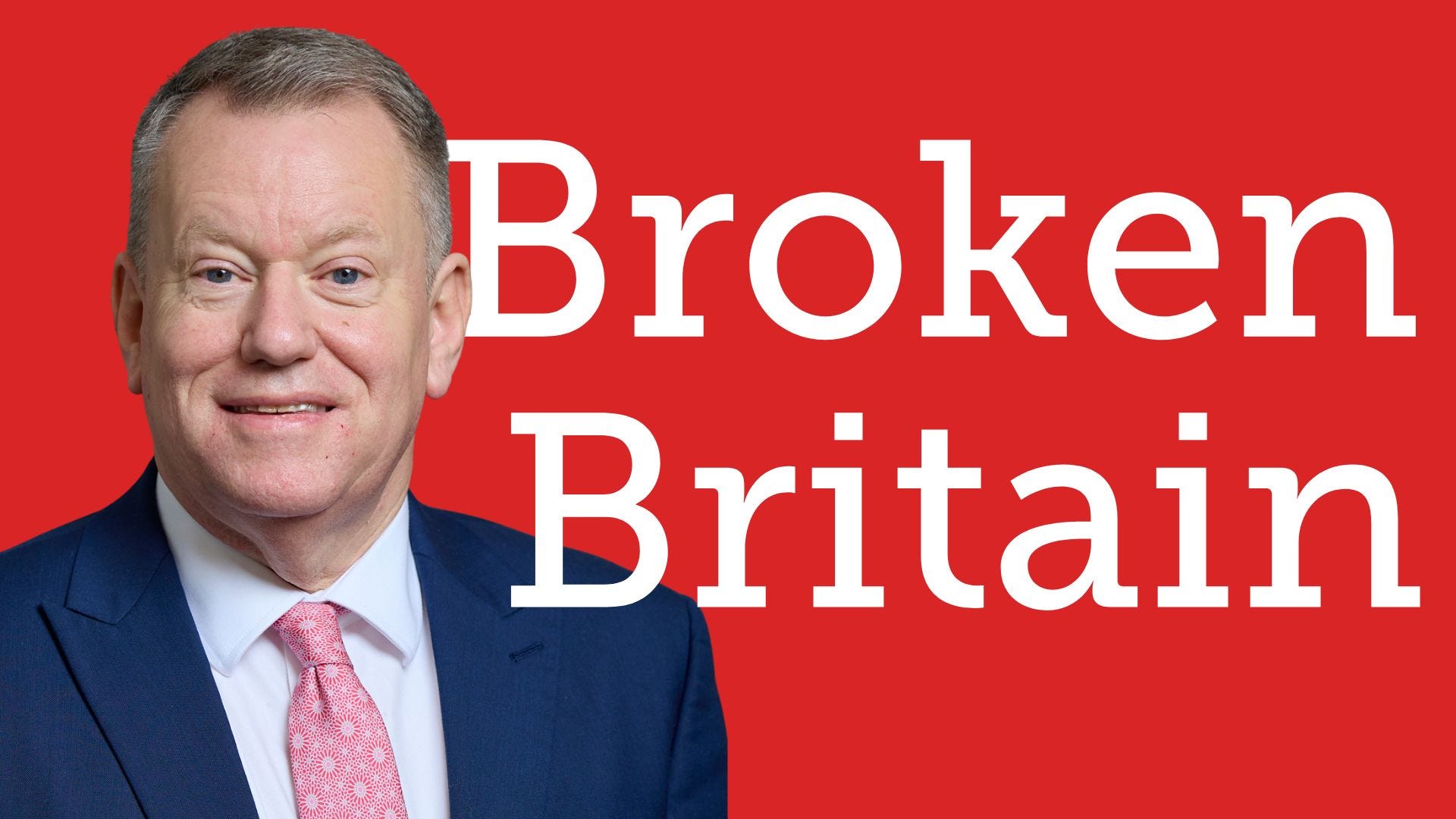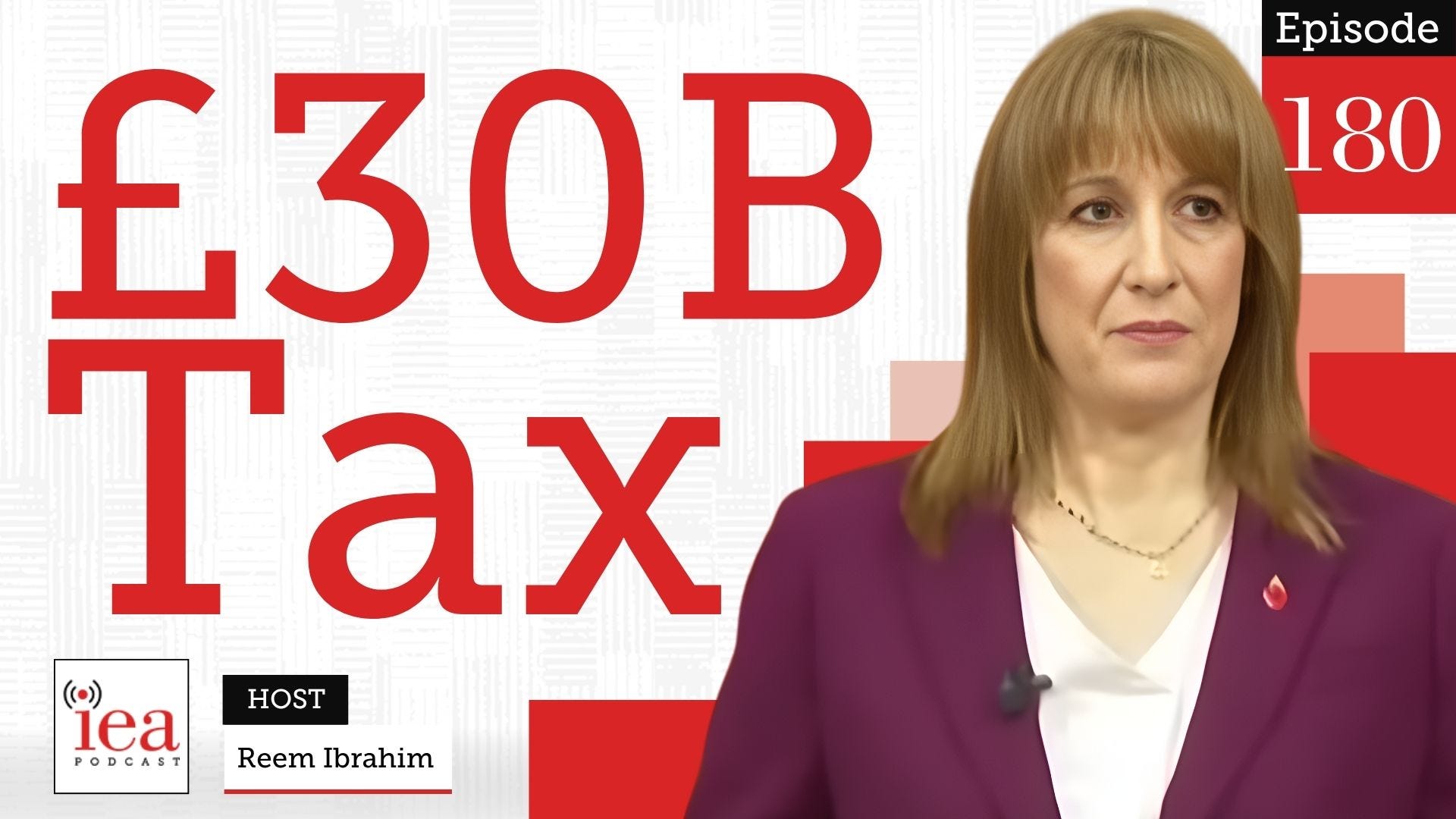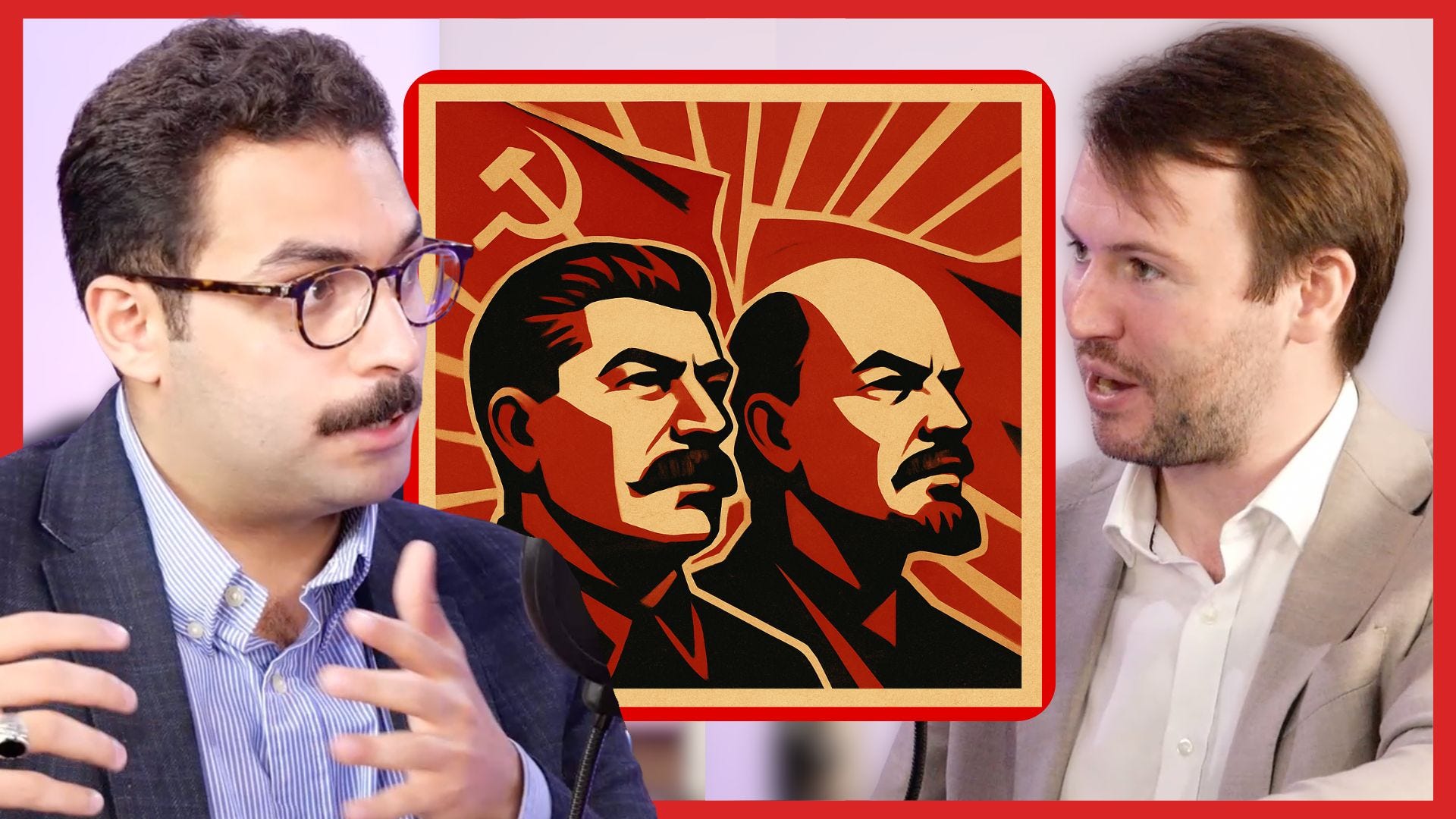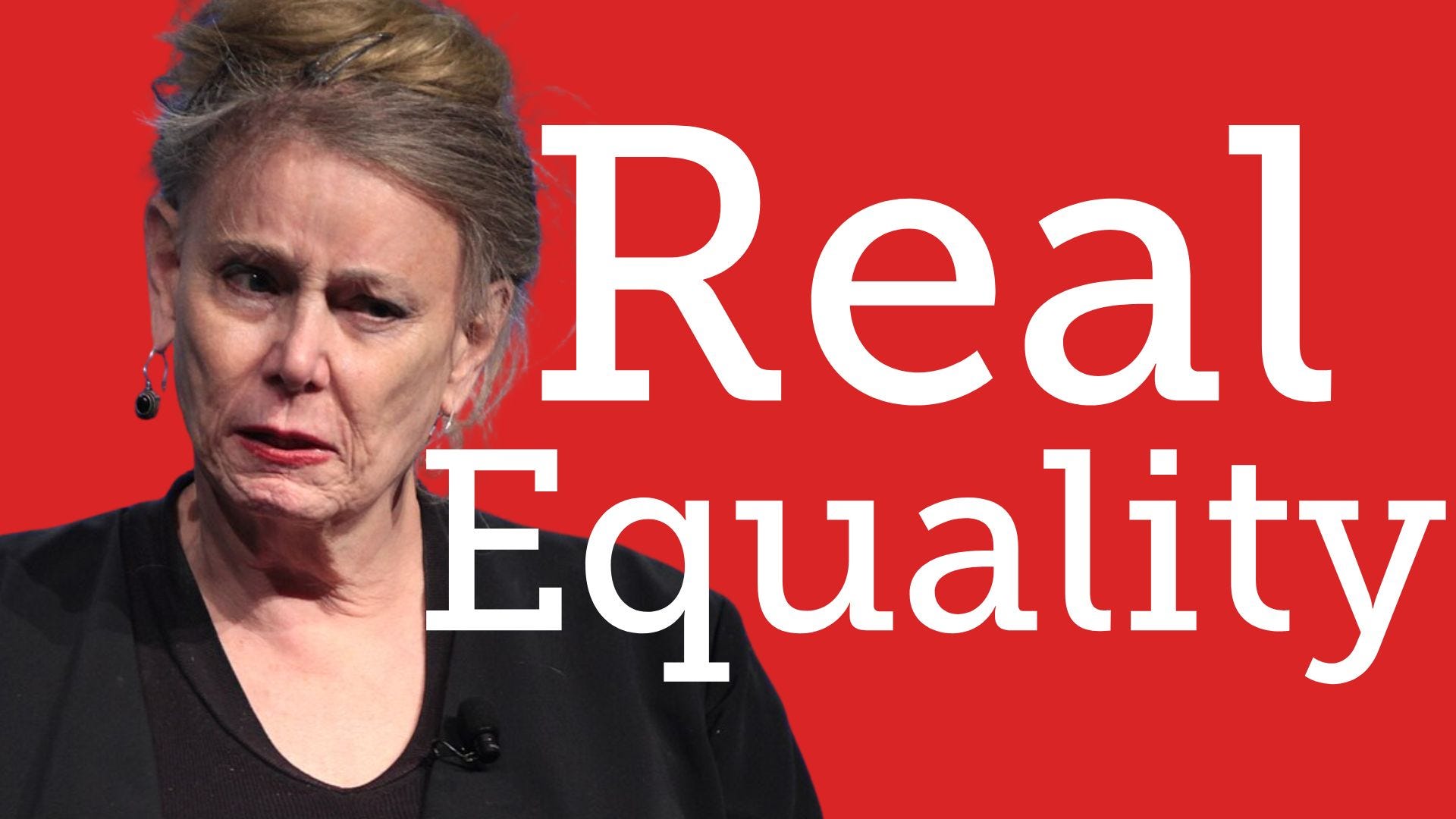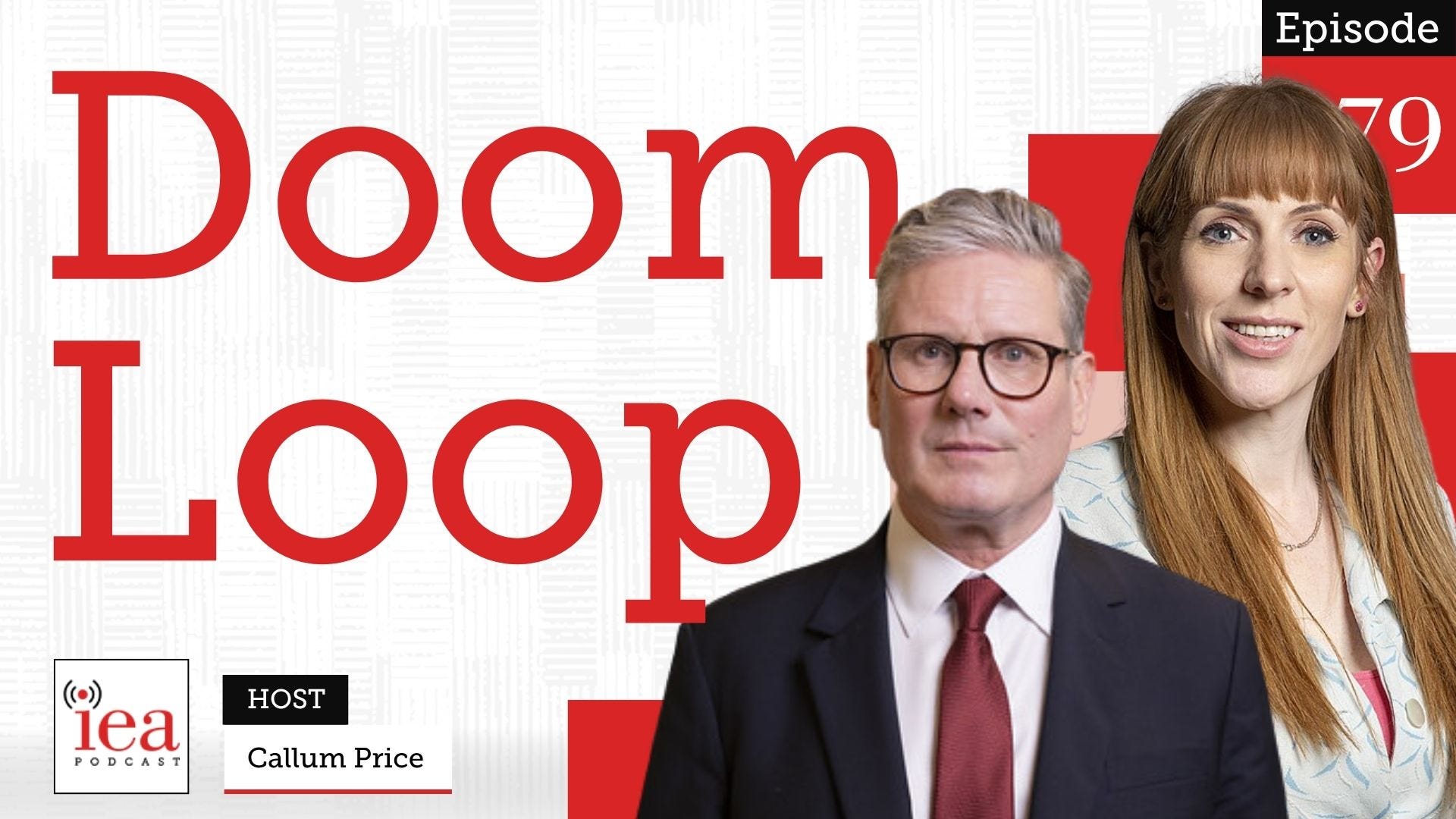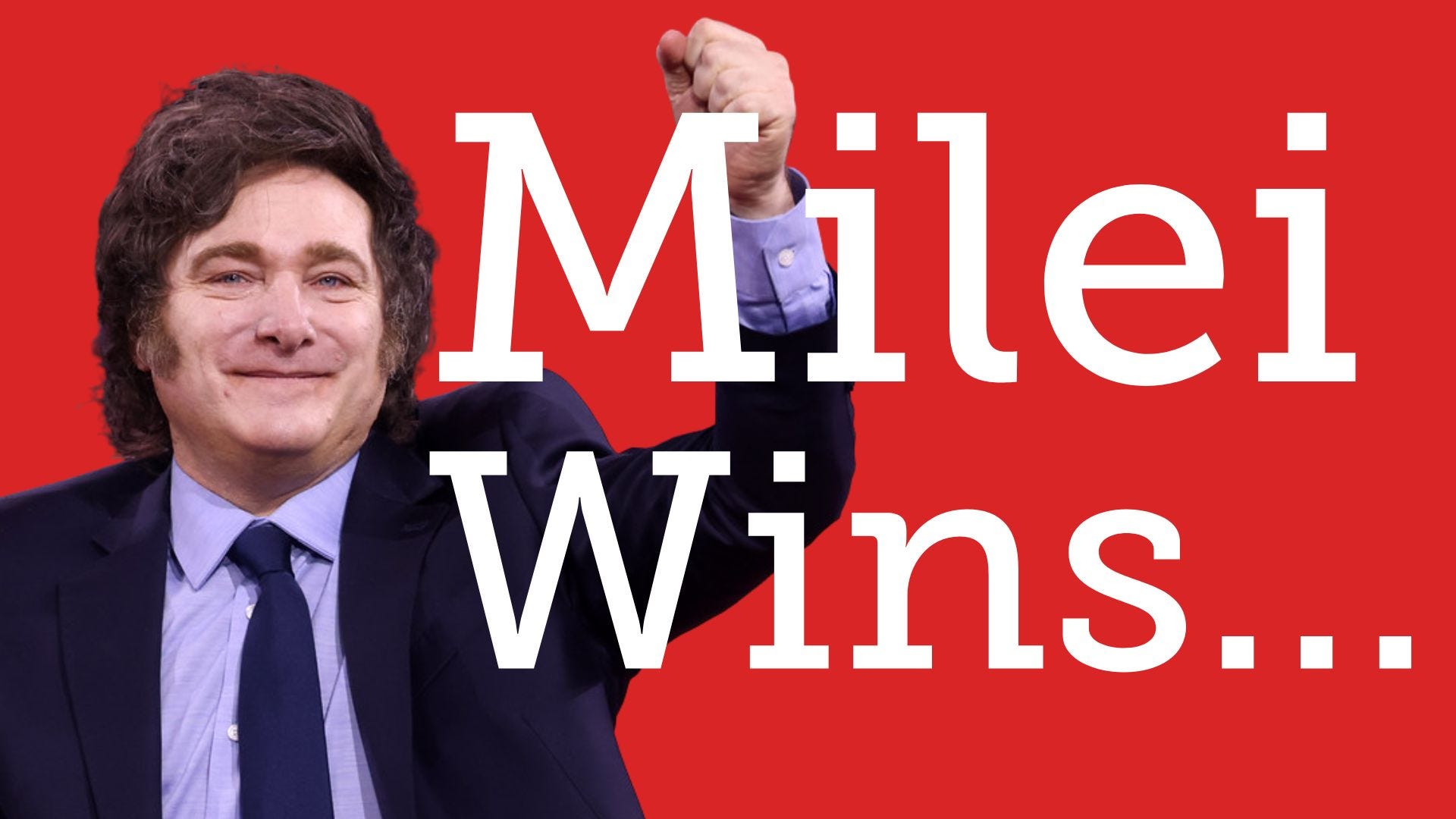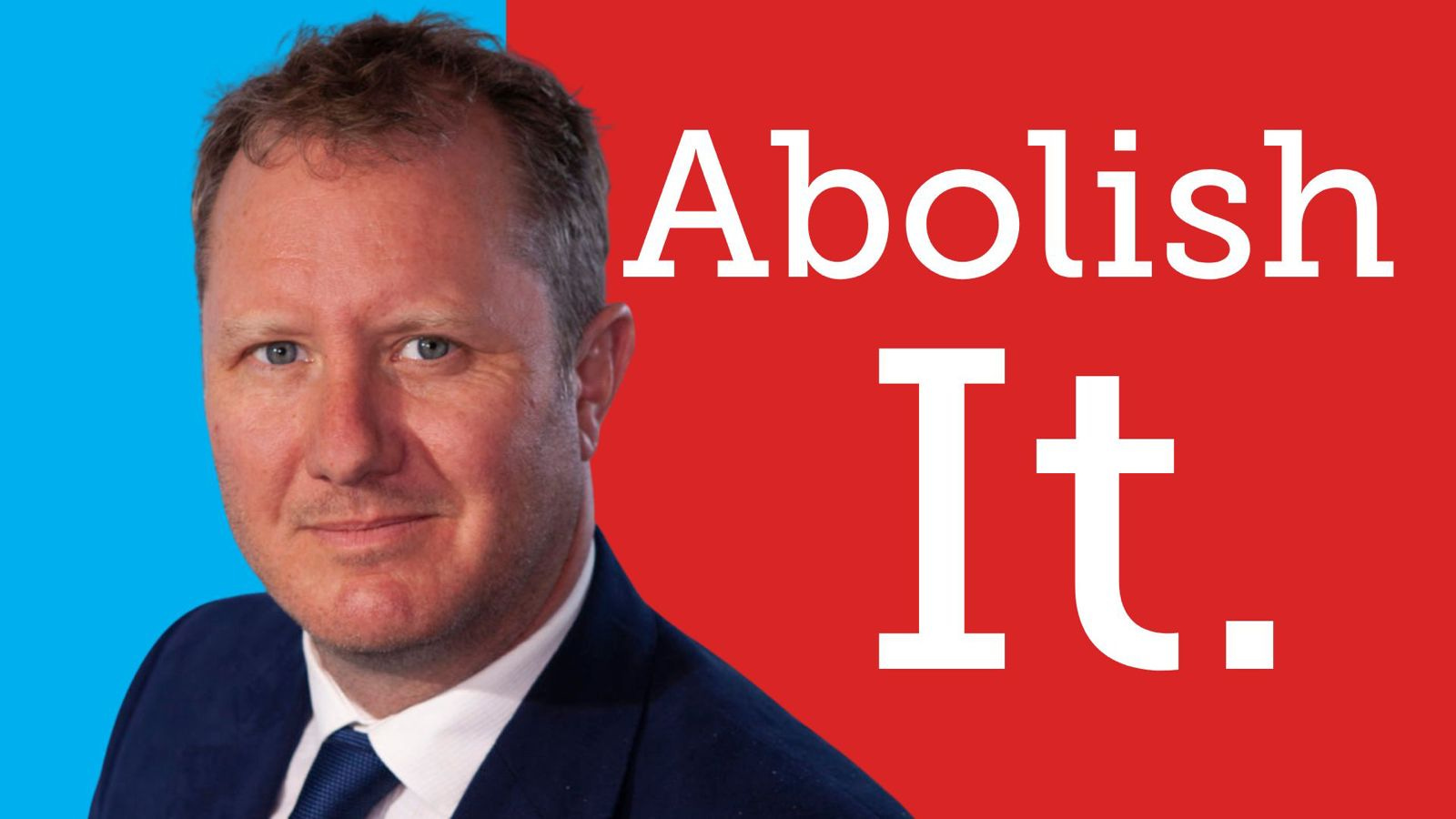Discover IEA Podcast
IEA Podcast

IEA Podcast
Author: Institute of Economic Affairs
Subscribed: 433Played: 16,342Subscribe
Share
© Institute of Economic Affairs
Description
The Institute of Economic Affairs podcast examines some of the pressing issues of our time. Featuring some of the top minds in Westminster and beyond, the IEA podcast brings you weekly commentary, analysis, and debates.
insider.iea.org.uk
insider.iea.org.uk
291 Episodes
Reverse
In this Institute of Economic Affairs podcast, IEA Head of Media Reem Ibrahim interviews Dominic Frisby, comedian and financial commentator. The conversation explores Frisby’s recent book “The Secret History of Gold” and examines why gold is becoming increasingly important as a strategic reserve, particularly with China’s growing economic influence. They discuss how Frisby’s investigation into gold and commodities led him to understand modern monetary systems, including how most money is created through debt issuance and why housing has become so unaffordable.The discussion covers the connection between fiat currencies and government power, with Frisby arguing that state control of money enables broader state control across society. He explains how the 19th century gold standard era saw consumer prices halve over decades, contrasting sharply with today’s persistent inflation. The conversation examines Bitcoin as an alternative monetary system and explores whether decentralised money could limit government overreach. Frisby shares his experience writing about controversial topics and the challenges he’s faced with venue cancellations.The interview concludes with Frisby’s unique approach to political satire through music, including songs like “Govern Me Harder” that blend comedy with economic commentary. He discusses how fiat money enables institutions to operate outside normal market rules and how this affects everything from education to media. Frisby explains his work across multiple platforms, from financial commentary through his Flying Frisby newsletter to comedy performances, and why he believes humour remains one of the most effective tools for communicating free market ideas. This is a public episode. If you'd like to discuss this with other subscribers or get access to bonus episodes, visit insider.iea.org.uk/subscribe
In this Institute of Economic Affairs podcast, IEA Executive Director Tom Clougherty interviews Grover Norquist, founder and president of Americans for Tax Reform. The conversation covers the Taxpayer Protection Pledge, which has transformed American politics over the past 40 years, how the Republican Party became the party that will not raise taxes, and the future direction of the conservative movement in the United States.Norquist explains how the pledge system works and its impact on both federal and state politics. He discusses the dramatic shift since 1994, when 96% of Republicans signed the pledge, ending 62 years of Democratic congressional dominance. The conversation explores state-level tax reforms, with multiple states abolishing income taxes and cutting rates, and how population migration from high-tax to low-tax states is reshaping American electoral politics. Norquist also addresses the Republican coalition strategy, explaining why unified opposition to tax increases has been more electorally successful than competing with Democrats in bidding wars for government spending.The interview concludes with analysis of conservative coalition building, contrasting the Republican “leave us alone” coalition with the Democratic spending coalition. Norquist discusses how limiting government revenue forces the left’s coalition to fracture, and explains the long-term demographic and political trends that favour limited government policies. He also critiques recent proposals from some conservatives to abandon anti-tax principles, arguing this would destroy the Republican electoral majority without winning new voters. This is a public episode. If you'd like to discuss this with other subscribers or get access to bonus episodes, visit insider.iea.org.uk/subscribe
In this Institute of Economic Affairs podcast, Callum Price, Director of Communications, is joined by Dr. Kristian Niemietz, Editorial Director, and Daniel Freeman, Managing Editor, to discuss Rachel Reeves’ latest budget. The conversation examines whether the government has abandoned its growth agenda after the OBR stated that none of the budget’s policy measures would have a material impact on potential output. They analyse the government’s approach to economic growth, comparing it to someone who says they want to learn Italian but never takes any steps towards achieving that goal.The discussion explores how the government has increased the total tax burden by £70 billion over two budgets, bringing Britain to the highest tax take as a portion of GDP in its history. Daniel and Kristian break down where this money is going, particularly the £16 billion increase in welfare spending by the end of the decade, and how income tax freezes and national insurance changes are funding this expansion. They examine the unusual political timing of imposing new taxes right at the end of a parliamentary term while most departments face real terms cuts, creating a situation where the government seems to lack a clear sense of what it’s trying to achieve.The podcast concludes with an analysis of Britain’s highly progressive tax system and its impact on productivity growth. They discuss how the UK’s tax progressivity creates an illusion that public spending can be funded by a small number of wealthy individuals, when in reality a Belgian-sized public sector requires Belgian-level taxes on average earners. The conversation covers how punitive high-end taxation, combined with wage compression from minimum wage increases, has contributed to Britain’s dismal productivity growth of just 0.6% annually since the financial crisis, compared to over 2% before 2008. This is a public episode. If you'd like to discuss this with other subscribers or get access to bonus episodes, visit insider.iea.org.uk/subscribe
In this Institute of Economic Affairs video, Lord Frost, incoming IEA Director General, delivers his immediate reaction to Rachel Reeves’ first budget as Chancellor. Lord Frost examines how the budget pushes Britain’s tax burden to its highest level in history - 38.2% by the end of this Parliament - surpassing even World War Two levels. He breaks down how the government achieved this through freezing income tax thresholds and what he calls a “smorgasbord” of small taxes that collectively raise significant revenue, from the extension of sugar taxes to milkshakes and lattes to Britain’s first national hotel tax.Lord Frost criticises the budget’s approach to sin taxes, pointing out that tobacco tax revenue has fallen by 40% between 2022 and 2024 as people find ways to evade the duties. He challenges the government’s spending priorities, questioning the effectiveness of ending the two-child benefit cap despite its multi-billion pound cost, and warns about the dangers of Britain now having one of the highest minimum wages in the OECD. He argues that while young workers may earn more, the real cost is felt in jobs that never materialise because employment becomes too expensive.The interview concludes with Lord Frost’s assessment that the budget continues Britain’s decade-long trajectory in the wrong direction. He argues that increasing tax, spending and regulation will not deliver prosperity, and calls for a fundamental reversal - cutting spending, reducing the tax burden, and deregulating to allow people to spend their own money. Lord Frost delivers a stark verdict: “What the country needed was the state’s boot off the neck of the country - instead, it’s given it a kick in the teeth.” This is a public episode. If you'd like to discuss this with other subscribers or get access to bonus episodes, visit insider.iea.org.uk/subscribe
Read the full paper here: https://iea.org.uk/publications/2025-budget-briefing-tax-policy-preview-options-and-possible-impacts/With Chancellor Rachel Reeves set to deliver her Autumn Budget on Wednesday 26th November, IEA Economics Fellow Julian Jessop joins Managing Editor Daniel Freeman to discuss his new budget briefing paper. Jessop warns that the Chancellor faces a financial hole of up to £30 billion and will likely attempt to fill it through a combination of extending the freeze on personal tax thresholds and what he describes as a “dog’s breakfast” of smaller tax measures. While the largest component of the hole – around £20 billion – stems from a long-overdue downgrade to the OBR’s productivity forecasts, the remainder results from Labour’s own policy decisions, including abandoned welfare reforms and increased spending commitments.The discussion explores why attempting to raise £20 billion from numerous small tax changes is economically risky and likely to prove unreliable. Jessop argues that such a patchwork approach – potentially including higher Council Tax on expensive properties, closing Capital Gains Tax loopholes, imposing National Insurance on rental income, and increased sin taxes – creates greater uncertainty and unintended consequences than a simpler rise in broad-based taxes like income tax or VAT. He reveals that the government reportedly abandoned a “two up, two down” plan to raise income tax rates by 2p while cutting employee National Insurance by 2p, likely due to political concerns about breaching manifesto commitments rather than improved economic forecasts.Jessop makes the case that the root problem is spiralling public spending, which is forecast to rise by £200 billion over the next five years from £1,150 billion to £1,350 billion. He argues that simply restoring productivity in public services to pre-COVID levels could provide the same services for 4% less money, eliminating the need for tax rises altogether. The conversation also covers broader tax reform possibilities, including abolishing stamp duty and National Insurance, and why successive governments have failed to rationalise the VAT system despite cross-party agreement among economists that it’s deeply flawed. This is a public episode. If you'd like to discuss this with other subscribers or get access to bonus episodes, visit insider.iea.org.uk/subscribe
We would like to apologise for the video quality issues that take place throughout the recording. This will be fixed for upcoming recordings.In this Institute of Economic Affairs podcast, IEA Managing Editor Daniel Freeman speaks with Kristian Niemietz and Julian Jessop about the upcoming autumn budget and Britain’s fiscal challenges. The conversation examines how bond market participants have become increasingly attuned to political instability, tracking everything from cabinet relationships to policy U-turns as indicators of fiscal risk. They discuss how competitive bond markets operate not on ideology but on risk assessment, and why claims of “bond market dictatorship” fundamentally misunderstand how financial markets work.The panel analyses Labour’s constrained position heading into the budget, caught between promises not to raise taxes on working people and the inability to cut spending due to backbench resistance despite a massive parliamentary majority. They examine various wealth tax proposals being floated, from mansion taxes to exit taxes on unrealised capital gains, explaining why international evidence suggests such measures consistently fall short of revenue expectations. The discussion covers the practical problems with revaluing council tax bands and the political toxicity of measures that would hit asset-rich but cash-poor homeowners.The conversation concludes with budget predictions, including the possibility that Labour might not just freeze tax thresholds but actually decrease them, potentially lowering the higher rate threshold to £46,000 and the additional rate to £100,000. This would create marginal tax rates exceeding 70% and hit millions more workers including senior nurses with higher rate tax for the first time. The panel debates whether the economic arguments can overcome the political toxicity of such moves as the Chancellor prepares for what they characterise as an economically and politically toxic budget. This is a public episode. If you'd like to discuss this with other subscribers or get access to bonus episodes, visit insider.iea.org.uk/subscribe
n this episode of the IEA Podcast, host Daniel Freeman sits down with Jacob Mchangama to explore the fascinating history of free speech, from ancient Athens to modern social media. Jacob reveals how Socrates became a martyr for ideas he didn’t even believe in, why the Romans feared giving ordinary citizens a voice, and how medieval Islamic scholars championed free inquiry while Europe burned heretics. The conversation traces free speech through the Enlightenment, examining John Stuart Mill’s warnings about the tyranny of the majority and how these debates remain strikingly relevant today.Jacob explains why free speech has become increasingly polarised along political lines, with both left and right abandoning the principle when it becomes inconvenient. From Palestine Action protesters arrested in London to Trump administration pressures on media critics, the discussion reveals how quickly the targets of censorship can shift. He argues that legal protections for speech are ultimately downstream from culture, pointing to how American free speech exceptionalism is surprisingly recent, noting that people could be jailed for Communist Party membership in the 1950s or opposing World War I.The conversation concludes with Jacob’s call for a cross-partisan coalition committed to robust free speech protections, regardless of who’s wielding power. As he emphasises, abandoning free speech because people you disagree with invoke it is a shortsighted strategy that inevitably backfires when you’re on the receiving end. This is a public episode. If you'd like to discuss this with other subscribers or get access to bonus episodes, visit insider.iea.org.uk/subscribe
In this Institute of Economic Affairs podcast, IEA Head of Media and Linda Whetstone Scholar Reem Ibrahim interviews Dr. Nima Sanandaji, Swedish author, researcher and public policy scholar known for his work on entrepreneurship, innovation and welfare reform. The conversation challenges the conventional narrative around the Nordic model, examining how the myth of successful Scandinavian socialism obscures a century of free market prosperity built on low taxes and economic freedom. They discuss Sanandaji’s co-authored IEA briefing paper “The Welfare State Myth” which analyses welfare outcomes across advanced economies over five decades.Sanandaji reveals how Sweden’s economic success came from 100 years of low taxation and free market capitalism - including inventing the first company shares, central banking system and credit notes - before switching to high taxes in the 1970s led to stagnation and welfare dependency. The discussion examines comprehensive data comparing 30+ advanced economies, demonstrating that countries with lower taxes consistently achieve better welfare outcomes in employment, education and overall wellbeing. They explore how high-tax welfare states create poverty traps that particularly harm immigrants and young people, with evidence from Sweden’s policy failures and warnings about the UK’s trajectory toward mass welfare dependency.The interview concludes with policy recommendations drawn from successful low-tax countries like Ireland, Estonia and Malta, advocating for school choice, apprenticeship systems, healthcare competition and reducing government bloat. Sanandaji argues that countries like the UK are repeating Sweden’s mistakes by combining Anglo-Saxon legal traditions with socialist high-tax policies, leading to economic stagnation and declining welfare outcomes. The conversation challenges policymakers to examine the evidence showing that economic freedom and lower taxation produce superior results for citizens’ wellbeing and social mobility. This is a public episode. If you'd like to discuss this with other subscribers or get access to bonus episodes, visit insider.iea.org.uk/subscribe
Welcome to Economics 101, a new series designed to distill the fundamental principles of economics into clear, easy-to-understand explanations. Join Dr. Stephen Davies as he breaks down complex economic concepts using simple analogies and real-world examples, making economics accessible to everyone regardless of their background. Whether you’re a student, professional, or simply curious about how the economy works, this series will equip you with the essential knowledge to understand the economic forces that shape our daily lives.In this episode, Dr. Davies explores the most foundational concept in all of economics: scarcity. But scarcity doesn’t mean what most people think it means. It’s not about things being rare - it’s about resources requiring effort to acquire and transform, and the fact that using them for one purpose means you can’t use them for another. This simple insight leads to what economists call “the economic problem”: how do we decide what to produce with limited resources when people want different things? Dr. Davies explains why the price mechanism in competitive markets has proven to be the most efficient solution to this fundamental challenge, far more effective than central planning or consensus-building. This is a public episode. If you'd like to discuss this with other subscribers or get access to bonus episodes, visit insider.iea.org.uk/subscribe
In this Institute of Economic Affairs podcast, Managing Editor Daniel Freeman is joined by Editorial Director Kristian Niemietz and Energy Analyst Andy Mayer. The trio discuss the BBC’s turbulent week following Director-General Tim Davie’s resignation over misleading edits of a Trump speech, examining long-standing questions about BBC bias and whether the licence fee funding model remains justifiable in the streaming age.The conversation moves to Labour’s chaotic U-turns on child benefit caps and income tax thresholds, with Kristian unpacking why the government keeps reversing course on key policies. They analyse whether these flip-flops reflect political inexperience, poor planning, or deeper issues with Labour’s fiscal strategy and spending priorities.The episode concludes with Andy Mayer’s analysis of Britain’s potential nuclear renaissance, as Ed Miliband announces plans to build small modular reactors with Rolls-Royce. While welcoming the ambition, Andy warns that Britain’s regulatory overreach and history of cost overruns could undermine the project. The discussion covers whether Rolls-Royce can compete globally, concerns about protectionism, and why so many environmentalists remain hostile to nuclear power despite its zero-carbon credentials. This is a public episode. If you'd like to discuss this with other subscribers or get access to bonus episodes, visit insider.iea.org.uk/subscribe
Join Lord Kamall in conversation with Lord Matthew Elliott, one of Britain’s most prolific policy entrepreneurs, in this captivating episode of Entrepreneurial Minds. From selling magazine ads as a student at LSE to founding the Taxpayers Alliance while ducking into phone boxes in Parliament’s “dungeon,” Matthew shares the extraordinary journey of creating multiple influential campaign organisations. Discover how he built Britain’s most effective taxpayer advocacy group from scratch, navigated the Brexit campaign with Vote Leave, and founded the Jobs Foundation to help disadvantaged people into work. This isn’t your typical business startup story, it’s about entrepreneurship in the political arena, where success is measured in policy change rather than profit margins.Matthew reveals the secrets behind effective grassroots campaigning, the art of media relations, and why he believes successful campaign groups need enemies as much as allies. He discusses his controversial stance on Trump, the influence of his self-made grandfather versus his social worker father, and offers candid advice for aspiring policy entrepreneurs. Whether you’re a budding activist, interested in political campaigning, or simply curious about how ideas become movements, this conversation provides rare insights into the mechanics of political change.Recorded at the Institute of Economic Affairs in partnership with the Vinson Center at the University of Buckingham and the Buckingham Enterprise Innovation Unit, this is the second in our series exploring different forms of entrepreneurship. Subscribe for more conversations with entrepreneurs who are changing Britain, one bold idea at a time. This is a public episode. If you'd like to discuss this with other subscribers or get access to bonus episodes, visit insider.iea.org.uk/subscribe
In this Institute of Economic Affairs event, Managing Editor Daniel Freeman interviews Dr. Kit Kowol about his book “Blue Jerusalem: British Conservatism, Winston Churchill, and the Second World War” published by Oxford University Press. The conversation examines the surprisingly dynamic and idealistic aspects of the British right during World War Two and their competing visions for post-war Britain, challenging the myth that only Labour had ideas for the home front while Conservatives focused solely on military strategy.Kit discusses the conservative intellectual renaissance that occurred during the war years, explaining how the absence of strong party control allowed a flowering of bottom-up thinking through journals, pamphlets, dining clubs and proto-think tanks. He explores how different factions within the Conservative Party fought over Britain’s future, from those advocating for economic planning to free marketeers warning against socialism. The conversation covers the debate between those who wanted a “people’s war” with revolutionary citizen armies versus professional military leadership, and how these wartime arguments shaped Britain’s political trajectory.The discussion concludes with reflections on why the Conservatives lost in 1945 despite wartime achievements, the post-war consensus that marginalised free market voices, and why the Conservative Party cannot simply look to the past for answers to today’s challenges. Kit argues that modern Britain is radically different from 1945 or even 1997, requiring fresh thinking rather than historical parallels. This event took place at the IEA, the organisation whose intellectual origins emerged from the same wartime milieu Kit documents in his book. This is a public episode. If you'd like to discuss this with other subscribers or get access to bonus episodes, visit insider.iea.org.uk/subscribe
In this Institute of Economic Affairs podcast, IEA Head of Media Reem Ibrahim interviews Lord David Frost, the incoming Director General and Ralph Harris Fellow at the IEA. The conversation covers Lord Frost’s unusual political journey from Labour Party member to free marketeer, shaped by his experiences as a civil servant in Brussels during the 1990s. He discusses how witnessing the EU’s centralisation drive and the genesis of the single currency revealed the problems of politics overwhelming rational economics.Lord Frost explains his transition from the civil service to political life, culminating in his role negotiating Brexit and his subsequent elevation to the House of Lords. He reflects on the failures of the Brexit process, particularly the gutting of regulatory reform opportunities and the retention of EU laws that should have been scrapped. The discussion examines why Brexit hasn’t delivered the economic benefits promised, with Lord Frost identifying government dysfunction, excessive taxation, and regulatory burdens as key barriers rather than Brexit itself.The interview concludes with Lord Frost’s vision for the IEA and the free market movement. He argues that Britain needs fundamental solutions to its dysfunction in housing, energy, public services, and welfare. Lord Frost advocates for preparing the intellectual groundwork through serious research that explains how markets work better, similar to what the IEA achieved in the 1970s. He believes the movement must focus less on short-term tactical wins and more on winning the long-term war of ideas, making free market solutions the obvious answer when Britain reaches its crisis point. This is a public episode. If you'd like to discuss this with other subscribers or get access to bonus episodes, visit insider.iea.org.uk/subscribe
In this Institute of Economic Affairs podcast, Head of Media Reem Ibrahim speaks with Editorial Director Kristian Niemietz and Managing Editor Daniel Freeman about three major political developments. The conversation covers Chancellor Rachel Reeves’s unprecedented pre-budget speech delivered at 8pm on Tuesday evening, Nigel Farage’s shift towards Thatcherism, and socialist Zohran Mamdani’s election victory in New York.The discussion examines Reeves’s hints at significant tax increases ahead of the budget, with Daniel explaining how the government may raise between £20-30 billion through various measures. They analyse the possibility of increasing the basic rate of income tax for the first time since 1975 under Denis Healey, which would breach Labour’s 2024 manifesto commitments. The impact of last year’s employer National Insurance contributions hike is explored, particularly the damage to youth employment and job vacancies. Kristian contextualises the persistent budget deficit and record-high public spending and taxation, arguing that broad-based tax increases were inevitable given Labour’s unwillingness to cut spending.The podcast concludes with analysis of Zohran Mamdani’s New York mayoral victory and its implications for Democratic Socialists of America. They discuss his proposals for state-run grocery stores and free bus travel, debating whether this represents a genuine socialist revival or a localised phenomenon. The conversation explores potential spillover effects to UK politics, including Green Party politicians like Zack Polanski attempting to ride similar socialist waves, and whether international political trends can successfully transfer across different contexts. This is a public episode. If you'd like to discuss this with other subscribers or get access to bonus episodes, visit insider.iea.org.uk/subscribe
In this Institute of Economic Affairs podcast, Managing Editor Daniel Freeman interviews Professor Donald Boudreaux, who is a professor of economics at George Mason University, a senior fellow at the Mercatus Center, and a member of the IEA’s Academic Advisory Council. The conversation focuses on Boudreaux’s new book, The Triumph of Economic Freedom: Debunking the Seven Myths of American Capitalism, co-authored with former U.S. Senator Phil Gramm. They discuss why these economic myths persist and how they distort policy debates in both the United States and the United Kingdom.The interview examines several key myths, starting with the claim that the Industrial Revolution impoverished workers. Professor Boudreaux presents evidence showing that real wages, living standards, and life expectancy began rising for ordinary workers in Britain no later than the 1840s, and possibly as early as the mid-18th century. They discuss the so-called Engels pause and why workers voluntarily moved from the countryside to urban factories, voting with their feet for better economic prospects. The conversation also tackles the debate around tariffs and protectionism, particularly addressing claims that 19th century American prosperity was built on high tariffs rather than economic freedom and open immigration policies.The discussion concludes with an analysis of the China shock and manufacturing job losses in America. Professor Boudreaux presents research showing that regions affected by increased Chinese trade are actually better off today than before, and that approximately 87% of manufacturing job losses come from labour-saving technology rather than trade. He challenges the national security argument for tariffs, noting that broad-based tariffs like those imposed by recent US administrations hit allies just as hard as adversaries. Throughout the conversation, they emphasize how economic myths continue to shape misguided policies despite overwhelming evidence to the contrary. This is a public episode. If you'd like to discuss this with other subscribers or get access to bonus episodes, visit insider.iea.org.uk/subscribe
In this Institute of Economic Affairs clip, Aymen Aulaiwi explains how Stalin's command economy functioned and why centrally planned socialist systems inevitably fail. He breaks down the mechanics of Soviet five-year plans, where Gosplan set production targets that cascaded down through ministries to individual factories, completely bypassing market signals and consumer demand. Aulaiwi describes how Stalin's obsession with heavy industry - driven by Marx's "fetishisation of industry" and fears of capitalist invasion - led to an economy that prioritised steel and coal production over consumer goods, creating a system where "I do not buy sheets of steel off a catalogue, but I do buy lamps and textbooks." The discussion explores the three fundamental problems that doom all command economies: information asymmetries, soft budget constraints, and principal-agent problems. Using the example of a Newcastle café owner wanting to sell Dubai chocolate versus a Birmingham baker making poppyseed muffins, Aulaiwi illustrates Hayek's argument that economic information is too dispersed and localised for any central planner to understand. He explains how this connects to Marx's outdated labor theory of value, which ignores both the role of capital and consumer demand, treating products purely as embodiments of labor time rather than responses to market needs. Aulaiwi reveals a striking contradiction at the heart of Stalin's "socialist" system - despite Marx's belief that capital was pure exploitation, Stalin actually focused obsessively on capital accumulation and investment levels, making him "literally a capitalist" who suppressed worker consumption to fund industrial expansion. The conversation demonstrates why socialist calculation is impossible without real market prices, and how even modern attempts to introduce "social costs" like carbon taxes face the same information problems that destroyed the Soviet economy. This clip provides a devastating Austrian School critique showing why socialist economics cannot work in practice, regardless of good intentions. This is a public episode. If you'd like to discuss this with other subscribers or get access to bonus episodes, visit insider.iea.org.uk/subscribe
In this Institute of Economic Affairs podcast, Head of Media and Linda Whetstone Scholar Reem Ibrahim interviews Deirdre McCloskey, Isaiah Berlin Chair in Liberal Thought at the Cato Institute and Distinguished Professor Emerita of Economics, History, English and Communication at the University of Illinois at Chicago. The conversation explores McCloskey’s concept of “equality of permission” from her forthcoming book, examining how this primary liberalism of 1776 and 1789 differs from modern notions of equality of opportunity and equality of outcome.McCloskey argues that true liberalism isn’t about material redistribution or state-enforced equal starting points, but about removing obstacles that prevent people from pursuing their own flourishing. She critiques both socialist equality of outcomes and the impossible goal of equality of opportunity, advocating instead for a society with no masters rather than no poor. The discussion covers how this framework applies to occupational licensing, immigration, consumer protection, and economic regulation, with McCloskey contending that professional licensing requirements and government regulations often create artificial barriers rather than genuine protection.The interview concludes with reflections on the future of liberalism and the importance of free speech and a free press as essential battlegrounds. McCloskey draws parallels between government censorship of drama in London until 1967 and modern debates about regulating AI and hate speech. She remains optimistic that people’s hearts desire freedom, while warning against the temptation to become “wards of the state” rather than free adults. The conversation touches on everything from Abraham Lincoln’s self-education to the quality of ploughman’s lunches in Oxford pubs. This is a public episode. If you'd like to discuss this with other subscribers or get access to bonus episodes, visit insider.iea.org.uk/subscribe
In this Institute of Economic Affairs podcast, IEA Communications Director Callum Price is joined by Editorial Director Kristian Niemietz and Managing Editor Daniel Freeman. The conversation covers the newly enacted Renters Rights Act, examining how the legislation effectively introduces rent control through the back door and will likely reduce the supply of private rental properties. They discuss the end of fixed-term contracts, the tribunal system for rent disputes, and how these measures could drive landlords out of the market, reducing labour mobility and worsening housing availability for young professionals.The discussion then turns to wealth taxes and the broader economic landscape, with Kristian explaining why wealth taxes are fundamentally flawed, comparing them to “eating your seed corn” - consuming capital that should be generating future returns. They examine how capital flight has already occurred in countries like France, Norway and Switzerland, and why the UK’s economic stagnation makes politicians reach for fantasy solutions rather than addressing the real problem of economic growth. The team also discusses the IEA’s “Sharpen the Axe” series, which identifies concrete areas where government spending could be cut.The conversation concludes with an analysis of the government’s fiscal position ahead of the upcoming budget, looking at why promised tax rises keep recurring despite claims each budget will be the last. They explore Labour’s abandonment of planning reform and abundance agenda, the shelving of disability benefit reforms, and why Britain seems stuck in a doom loop of stagnant growth, rising demands on the state, and political unwillingness to make meaningful cuts to government spending. This is a public episode. If you'd like to discuss this with other subscribers or get access to bonus episodes, visit insider.iea.org.uk/subscribe
In this Institute of Economic Affairs podcast, IEA Director of Communications Callum Price interviews Axel Kaiser, co-founder and president of the Foundation for Progress in Chile and senior research fellow at the Adam Smith Centre at Florida International University. The conversation examines Argentina’s dramatic midterm election results under President Javier Milei, exploring how the libertarian government survived a critical political test after months of legislative battles, economic uncertainty, and a devastating provincial election loss that threatened to derail the entire reform agenda.Axel discusses the political warfare waged by Peronist and Kirchnerist opposition forces, who passed legislation to increase government spending and nearly collapsed Milei’s stabilisation program. The conversation covers how rising inflation, plummeting economic growth, and a 14-point loss in Buenos Aires provincial elections created fears that Argentina would revert to its century-long cycle of populism and economic failure. Despite these setbacks, the midterm results on Sunday represented a referendum between free markets and classical populism, with voters decisively backing Milei’s radical reforms.The interview concludes with lessons for Western democracies, particularly the UK and Europe. Axel argues that Argentina proves freedom works and that voters will support radical austerity and free market reforms if leaders tell the truth about economic realities. He criticises the welfare state model as no longer viable and expresses pessimism about Europe’s willingness to embrace necessary reforms, while suggesting the UK’s less ideological culture might make it more open to change than countries like Germany or France. This is a public episode. If you'd like to discuss this with other subscribers or get access to bonus episodes, visit insider.iea.org.uk/subscribe
In this Institute of Economic Affairs panel discussion at the Conservative Party Conference, Callum Price hosts Charlie Dewhirst MP for Bridlington and The Wolds, Andrew Griffith, Shadow Secretary of State for Business & Trade, and Christopher Snowdon, IEA Head of Lifestyle Economics. The panel examines how Labour has carried forward paternalistic Conservative policies including bans on disposable vapes, advertising restrictions on food, and the generational tobacco ban. They discuss how governments get bounced into nanny state measures by pressure groups despite these policies rarely appearing in manifestos or being close to ministers’ hearts.Christopher Snowdon presents a six-point plan to prevent future Conservative governments from capitulating to activist demands, including abolishing the public health minister post created by Tony Blair, banning state funding of pressure groups, and removing civil servants focused solely on policy development. The panel debates why such measures proliferate when politicians weigh up political costs and conclude it’s easier to give activists what they want rather than face accusations of kowtowing to industry. They criticise policies like the online safety act, Nando’s Coke refill bans, and restrictions on advertising tasty food as examples of petty prohibitionism.The discussion concludes with questions on football regulation, with panelists warning about inevitable mission creep from regulators. They argue the Football Association should sort out its own fit and proper persons test rather than creating new government oversight. The panel emphasises conservative principles of individual sovereignty, distrust of the state, and the belief that government should be servant not master, while acknowledging these are questions for democratic resolution rather than quango decision-making. This is a public episode. If you'd like to discuss this with other subscribers or get access to bonus episodes, visit insider.iea.org.uk/subscribe


